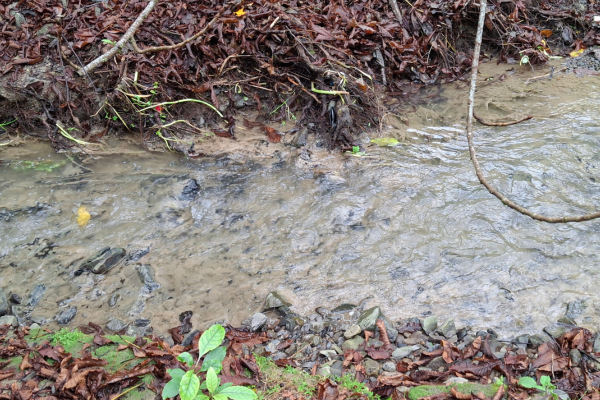
Residents are raising alarm over multiple suspected discharges of contaminated sludge into Mitchell Stream, running through Spicer Botanical Park below the Porirua landfill. The incidents, reported since 10 June, have prompted concern about environmental and public health impacts, with local resident Robyn Smith persistently pressing for answers.

Smith first alerted Greater Wellington Regional Council (GWRC) to a grey, foul-smelling sludge in the stream on 10 June, following up on 19 and 27 June, and again on 16 July. She said the stream remains heavily contaminated and has a noticeable sewage-like odour.
“I reported this several times, but the issue has continued and even worsened,” said Smith. “This is a significant health and safety issue for people using the park. I don’t believe the contamination has been properly tested.”

Greater Wellington confirmed it received public reports on 10 and 19 June and conducted site visits shortly after each. However, they found no evidence of an active discharge at the time. A follow-up visit involving GWRC staff, local councillor Hikitia Ropata, and the reporting resident is planned to better understand the situation.
Porirua City Council (PCC) said the increased sediment in Mitchell Stream is likely due to recent heavy rain. David Down, PCC’s Manager of Waste, said Wellington Water had confirmed the material was not wastewater but likely sediment from a nearby stormwater control pond.
“This event is not related to sewage sludge,” Down said. “The sludge from the sewage treatment plant is buried daily in the landfill. The landfill’s leachate drains to a sealed system connected to the sewer network, not the stormwater system.”
Down said a malfunction in the sediment pond might be to blame, and council is investigating why it is not performing as designed.
Despite these assurances, Smith remains unconvinced. “Unless GWRC has tested the contaminant, we don’t really know what it is. Even if it isn’t sewage, this is still a massive discharge of pollution,” she said.
GWRC has urged the public to report environmental incidents promptly via its hotline on 0800 496 734.
This developing story continues to raise questions about infrastructure resilience, environmental monitoring, and accountability between regional and city councils.
